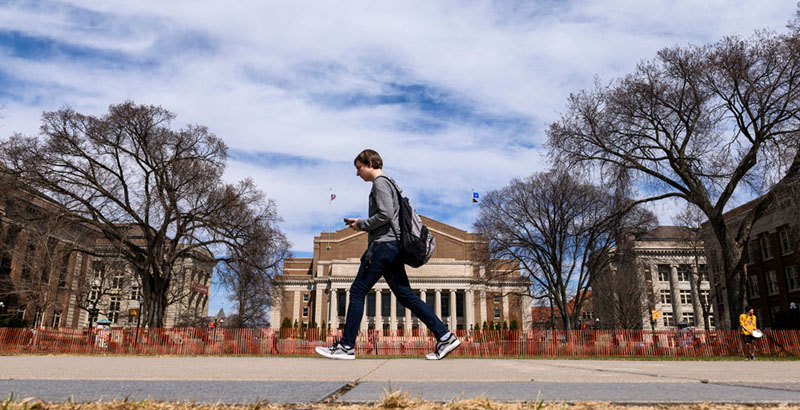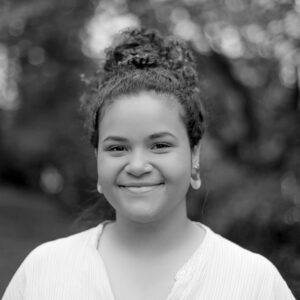More Than 1,000 Minnesota First-Time Student Loan Borrowers to Get Free College Success Coaching Under New State Partnership

Get stories like this delivered straight to your inbox. Sign up for The 74 Newsletter
This week, roughly 1,500 Minnesota college students will start classes with an additional resource: success coaches. Through a five-year partnership between the nonprofit InsideTrack and Minnesota’s Office of Higher Education, all first-time state student loan borrowers will have access to free, individual counseling.
InsideTrack coaches, many of whom are former social workers and teachers, will serve as virtual mentors throughout the academic year. They will support students in addressing barriers to college completion — developing plans for everything from employment and financing car repairs to communicating academic or mental health needs to professors.
“We know, during this particular period, there’s a lot of challenges that have been exacerbated for students. We want the coaching to help students develop critical, non-academic skills to be able to finish their degrees,” said Dennis Olson, commissioner of Minnesota’s higher education office, citing time management and the ability to balance academics with family commitments.
“When we’re on the other side of this pandemic, in economic recovery, we know we’re going to need students to have those skills into the future.”
The partnership comes at a time when, nationwide, students are withdrawing from institutions and changing their enrollment plans at rates intensified by the pandemic.
With sustainability in mind, the nonprofit will also coach state employees on how to use their mentorship and success model. In two to three years, Minnesota’s Office of Higher Education hopes to run and expand the coaching program in-house to support more than just first-time borrowers, encompassing those who may be nearer to graduation or who have re-enrolled years after their initial loan.
Olson said that the coaching initiative will help the state reach its educational attainment goal of having 70 percent of the state’s population aged 25-44 completing some level of higher education or credential by 2025. Minnesota faces education opportunity gaps along race and income lines.
The state’s 2020 estimates show that almost 69 percent of white Minnesotans have earned higher education credentials, while 37 percent of Black Minnesotans and 28 percent of Hispanic/Latino adults have done so.
For years, higher education institutions in Minnesota have offered financial counseling for their students and resources for first-generation students, but “we wanted more”, Olson told The 74.
“This isn’t just another form of student loan counseling, we wanted students to really have access to student success coaches at the state level. This is important — that the state agency be the one leading this effort and providing the service. We want students to have an opportunity to achieve their goals to make sure they understand how to navigate all those obstacles they may encounter,” he said.
In the 2021-22 academic year, $25,000 in emergency funds will also be available for students involved with the InsideTrack partnership facing urgent circumstances that could derail their college careers, like car breakdowns, child care needs or food insecurity. This funding is in addition to recently increased state emergency funds granted to institutions directly.
While InsideTrack also supports Indiana by providing residents with career coaching, the scope and scale of its Minnesota work is a first for the organization, founded in 2001. Historically, they’ve maintained relationships with institutions directly, including California State Universities.
“Institutions have 100 things going on and things that they’re trying to prioritize every day for their students. It can be hard to take an issue like their students’ progress towards graduation over something like student safety,” said Ruth Bauer White, InsideTrack’s president. “[State-level partnerships] are a way for us to have access to students and to prioritize that aid without an individual institution having to make that decision.”
InsideTrack’s coaches walk through “focus wheel” areas with students to understand their daily needs and what plans should be put in place to stay on-track for graduation. Some topic areas are managing commitments, mental and physical health, financial security and motivation for, or belief in, completion.
Mental health has been the most common focus area for InsideTrack nationally this year, according to Bauer White. The organization developed a crisis response team that Minnesota college students can be referred to for more resources and support.
Quantitative and qualitative data will be routinely shared with Minnesota’s higher education office, including which focus areas students cite most often with their coaches.
“Those are the things that we can bring to life for the state of Minnesota in a way that you can’t do if you’re not having that daily contact with students,” Bauer White said.
The program’s impact will be evaluated by University of Minnesota researchers, who will compare student success measures for the 1,500 randomly selected coached students to those of first-time loan borrowers in a similarly sized control group who did not receive coaching.
“[Data] will help inform particular asks, legislative initiatives and priorities,” said Thomas Sanford, the higher education office’s assistant commissioner for operations. “It’s a feedback loop that we can utilize to help support all of Minnesota.”
Get stories like these delivered straight to your inbox. Sign up for The 74 Newsletter

;)
